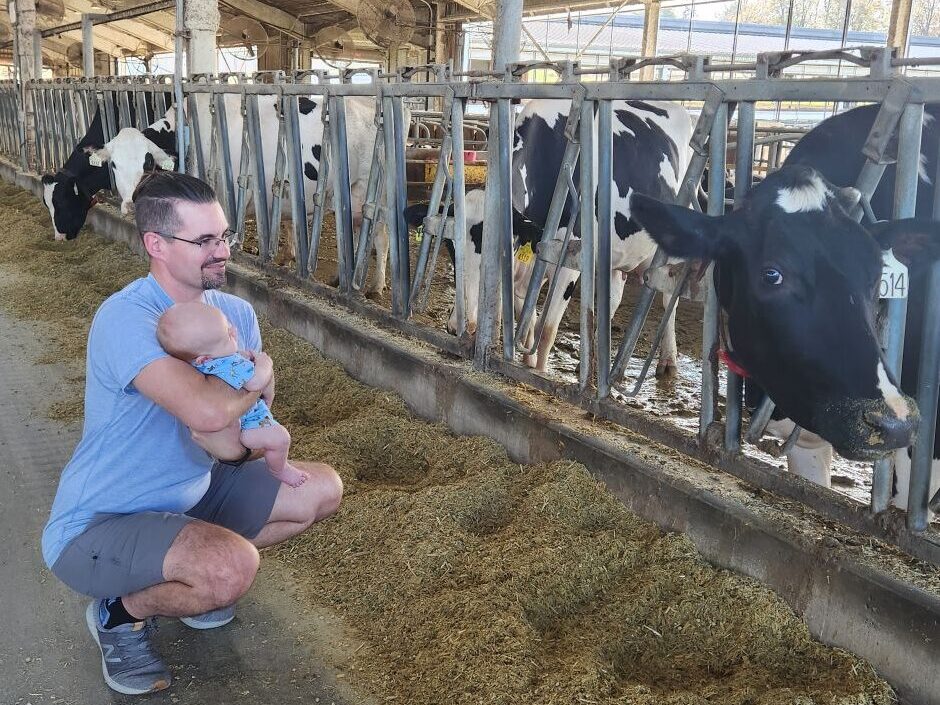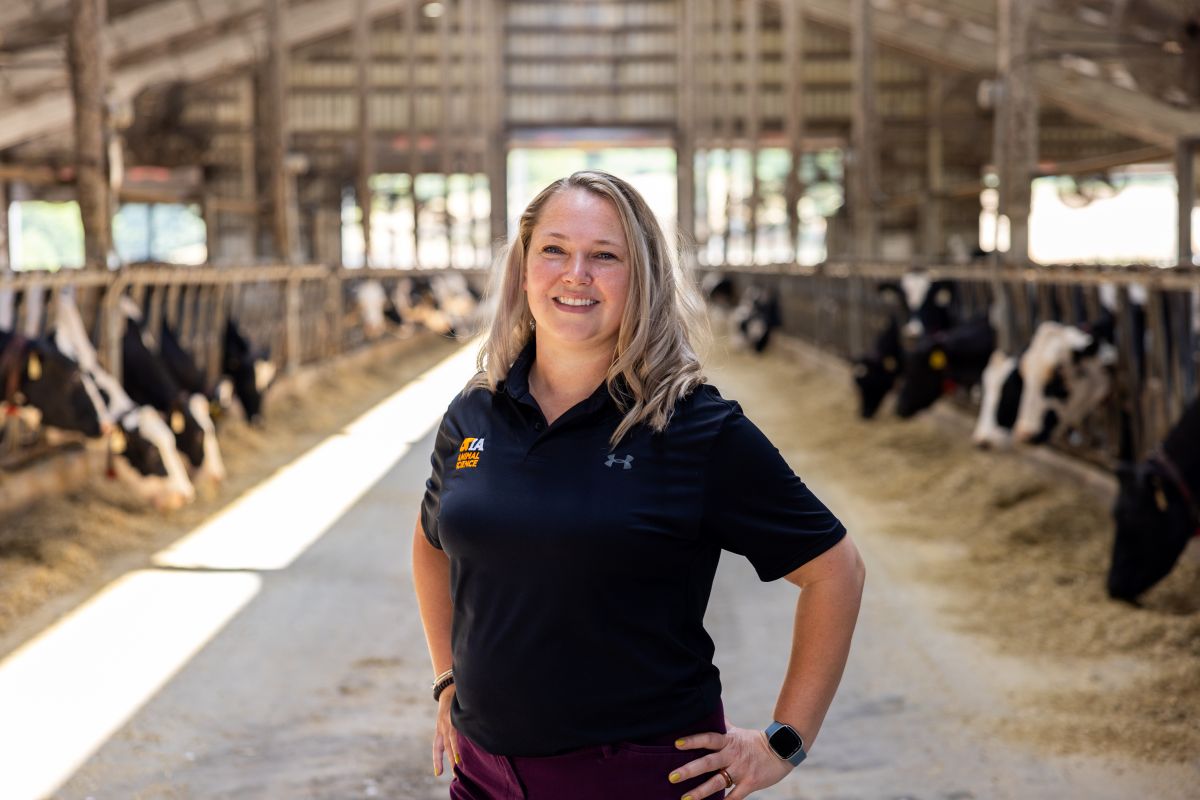
Dairy Extension Specialist supports producers through research, outreach and innovation
Can you describe your career journey and how it led to your role as a Dairy Extension Specialist at the University of Tennessee Institute of Agriculture?
I started my dairy career as an undergraduate at Louisiana State University in 2008. Although I didn’t have a dairy background before starting there, I was interested in dairy as a pathway to veterinary school and for the scholarship opportunities it provided. During my freshman year, I began working on the LSU dairy farm assisting with research, daily milking, calf feeding, and cleaning. Working with dairy cattle became my passion. I was also fortunate to learn the basics of dairy processing and applied use of precision dairy technology.
During my senior year, I met my future mentor from the University of Kentucky. He was an Extension specialist who engaged in applied research around housing, technology, and dairy cattle health. I began working with dairy farmers in Kentucky with compost bedded pack barns or sand bedded freestalls and tracking animal health and welfare indicators. From there, I continued my education with a PhD from the University of Kentucky focused on dairy farmer use of wearable precision dairy technologies. Working closely with dairy farm families throughout graduate school inspired me to pursue a career in Extension. Now, I work as a Dairy Extension Specialist and Director of the Center for Dairy Advancement and Sustainability – continuing to find applied solutions to complex issues facing the southeastern dairy industry.
What inspired you to focus your work on dairy systems?
Honestly, working closely with dairy farm families. They pour their heart and soul into their operations trying to make sure their animals, families, and the food supply is well cared for and secure. They work incredibly hard every single day for slim to negative profit margins. Trying to find ways to reduce workload, reduce input costs, and maximize returns has been my focus since graduate school.
What is your main research focus, and why is it critical for the future of Tennessee dairy farms?
My research is best described as eclectic. I work with a variety of research partners on everything from prediction freezing point through spectroscopy and new ways to color cheese to big data analyses of robotic milking systems for animal health predictions. Because the needs of the dairy producers in Tennessee are so varied, my research program varies to meet those needs. I focus heavily on animal health with precision dairy technologies, customer perceptions of value-added dairy products, and novel forages for dairy cattle nutrition.
What does a typical day in the life look like for you?
Eclectic, a lot like my research program! Some days it’s writing grants for USDA-AMS or FFAR. Other days it’s visits to dairy farms (both cow and goat!) to evaluate facilities, brainstorm solutions for health issues, or even discussing an on-farm processing facility. Frequently, though, it involves working with my graduate students or working with grant awardees through our Southeast Dairy Business Innovation Initiative.
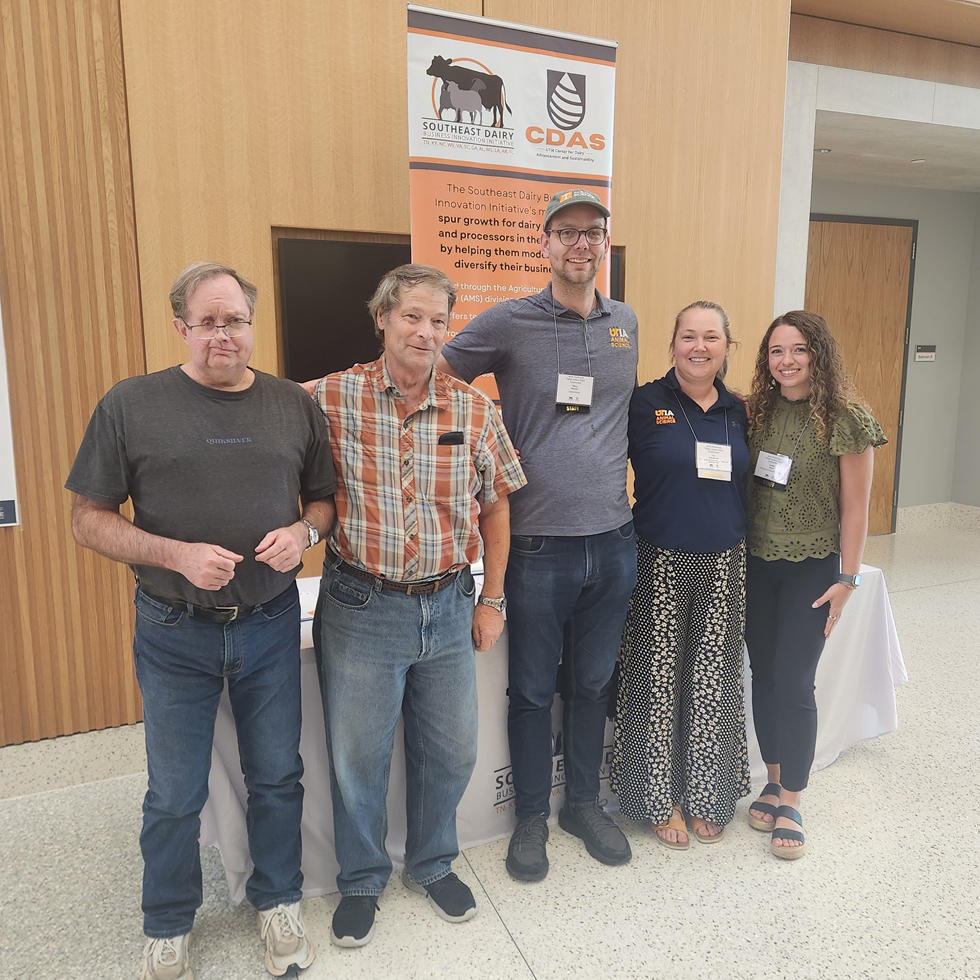
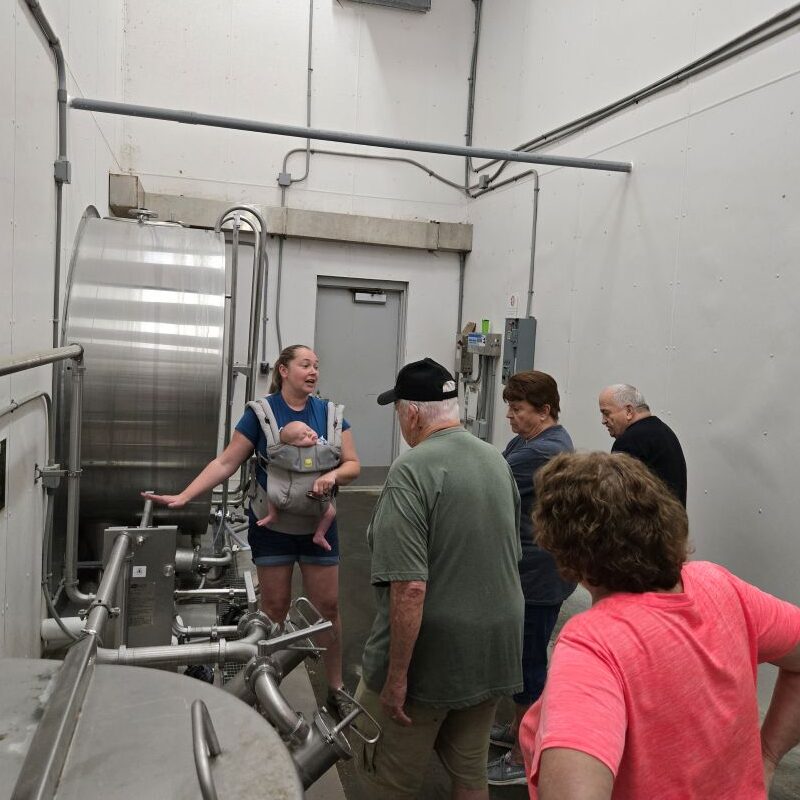
How does your research and outreach work help improve the efficiency and profitability of dairy farms?
My research and outreach has been much more tangible than I ever would have imagined as an incoming faculty member in 2017. Through my program, the Southeast Dairy Business Innovation Initiative, we directly award grant funding to dairy businesses across the Southeast. These funds have been used to put fans in barns, purchase new TMR mixers, enhance biosecurity, invest in precision technology (like robots for cows!), investing in on-farm processing (making your own ice cream!), and helping families transition the farm to the next generation. Typically, as an Extension specialist or a researcher, all you can do is provide guidance and suggestions on best management practices. Very rarely do we get to help farms directly put into practice these suggestions and guidance.
What is the Tennessee Master Dairy Program, and what is your role within it?
The Tennessee Master Dairy Program is a continuing education program covering a variety of topics focused on dairy producers and dairy processors. Topics may include milk quality, forage management, cow and calf health, reproduction, precision technologies, and farmstead processing. We often highlight graduate student research and emerging opportunities for the dairy industry. I am the lead of the program, but content and speakers are determined based on dairy industry needs, Extension specialist and agent feedback, and emerging issues. This program does provide a certificate that can be used for Tennessee Agricultural Enhancement Program (TAEP) through the Tennessee Department of Agriculture.
What do you enjoy most about the work you do?
My absolute favorite thing is letting dairy businesses know they have received funding for their grant application. A close second to that is watching my graduate students move through from incoming graduate student to a confident expert in their field.
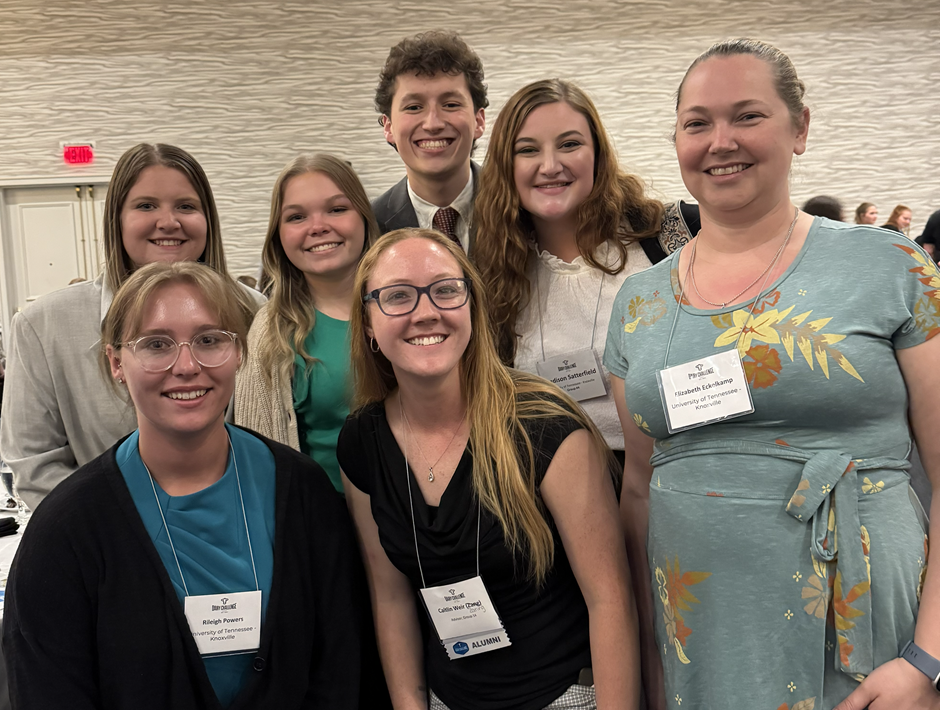
What is something about dairy systems or farm efficiency that you think everyone – producer or consumer – should understand?
That’s a good question. I would have to say the upcycling and intense management that goes into dairy farming. Most people don’t realize it is a 365 24/7 commitment. The cows don’t stop, so the farm(er) doesn’t stop either. Dairy farmers also have to be extremely judicious with their resources (manure, feed, animal health, reproduction) in order to be profitable. But beyond that, they pride themselves on being good stewards of their land, their cattle, and the public trust in the food supply.
Looking ahead, what challenges or opportunities do you see shaping the future of dairy farming in Tennessee?
The cost of inputs will continue to be a challenge for dairy farmers in Tennessee. Part of that input cost will be the cost of labor. Dairy farmers have no control over the price they receive for their milk, so controlling the cost of inputs is really their only option relative to profitability. Exploring labor saving or reducing technologies or alternative ways to market their milk (on-farm processing) will continue to shape the future of the Tennessee dairy industry. For opportunities, I expect we will continue to see a rise in dairy goat farmers. The barriers to entry are lower for dairy goats compared to dairy cattle which may encourage new producers.
Can you tell us about a current research project you are working on that you are excited about?
Yes! One of my graduate students is evaluating the lactation of dairy goats to better understand how somatic cell count (white blood cells in milk) change over time. She’ll be doing some comparisons across multiple types of precision technology and a direct microscope count of the somatic cells to find easier ways to evaluate dairy goat udder health for diseases like mastitis.
What do you like to do outside of work and/or what is a fun fact about yourself that your colleagues and students wouldn’t know?
Outside of work, I really enjoy needlepointing, listening to audiobooks, and going on adventures with my son, Ren, husband, Logan, and our two dogs.
